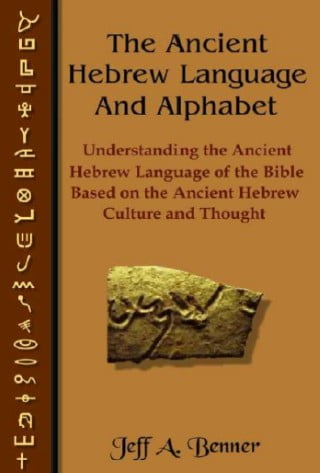
Ancient Hebrew Language
Hebrew Language by
Jeff A. Benner
The study of the Ancient Hebrew language and alphabet
begins with an understanding of the Ancient Hebrew
culture as both are intimately related. The original letters
of the Hebrew alphabet was actually pictures, or
pictographs, similar to Egyptian Hieroglyphs. Each
picture represented an object whose definition is closely
related to the agricultural lifestyle of the Ancient
Hebrews. By studying the culture and lifestyle of the
Ancient Hebrews we can better understand their language.
Ancient Hebrew Lexicon of the Bible
Hebrew Language by
Jeff A Benner
The authors of the Biblical text are writing from within their culture to those of the
same culture. In order to fully understand the text one needs to understand the culture
and thought processes of the Hebrew people.
All existing Hebrew Lexicons of the Bible convert the vocabulary of the ancient
Hebrews into a vocabulary compatible to our modern western language. The greatest
problem with this is that it promotes western thought when reading the Biblical text. In
this Lexicon the mind of the reader is transformed into an eastern one in order to
understand the text through the eyes of the ancient Hebrews who penned the words of
the Bible.
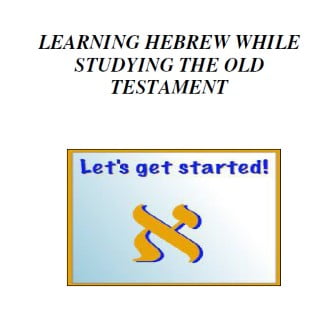
Learning Hebrew while studying the Old Testament
Hebrew Language by
Puritans’ Home School Curriculum
But as the titles suggest, the primary goal of these courses is the study of the Old and
New Testaments of the Bible, and learning some Hebrew and Greek are only
supplemental goals. Indeed, the hope is that learning some Hebrew and Greek along the
way will help in the study of the Bible. There will be much reading of the Bible in
English as part of this course, so as to make sure the primary end of the course is not lost
as a result of a merely secondary goal.
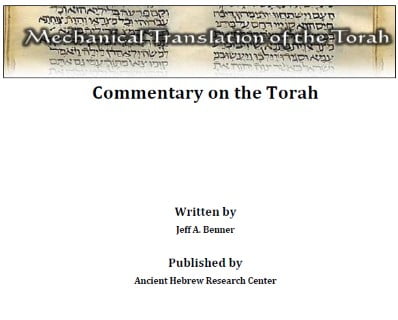
Mechanical Translation of Torah
Hebrew Language by
Jeff Benner
A new an a faithful way of translating the Bible by Ancient Hebrew Research Center. A mechanical translation prevents translators inserting their own bias and /or culture in the text.
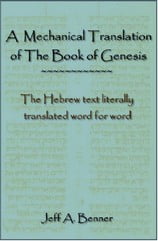
Mechanical Translation of Genesis
Bible translation by
Jeff Benner
A new an a faithful way of translating the Bible by Ancient Hebrew Research Center. A mechanical translation prevents translators inserting their own bias and /or culture in the text.
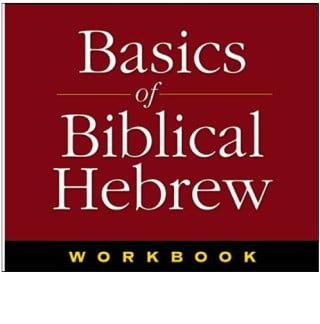
Basics of Biblical Hebrew
Hebrew Language by
Jeff Benner
The mention of the Hebrew alphabet brings to mind the Hebrew letters that are familiar to many today that are used in Torah scrolls, Hebrew Bibles and even in Modern Hebrew Books and Newspapers.
However, history suggests that these Hebrew letters are not the same Hebrew letters used in antiquity.
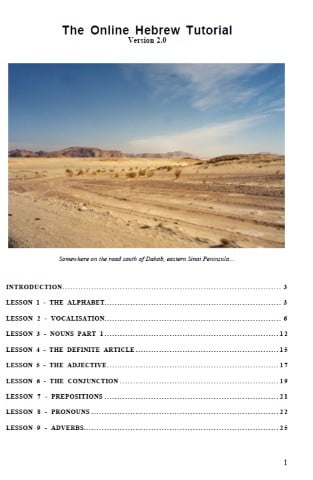
The Online Hebrew Tutorial
Hebrew Language by
Ben Stitz
Good Hebrew Tutor This program is aimed at the beginning, intermediate and advanced adult language student, without compromise to any one level. This application is not ideally suited for teaching young children – there are many reasonably priced commercial programs available that present the language material in a manner that stimulates children to learn. This makes no attempt to keep a young child’s attention.
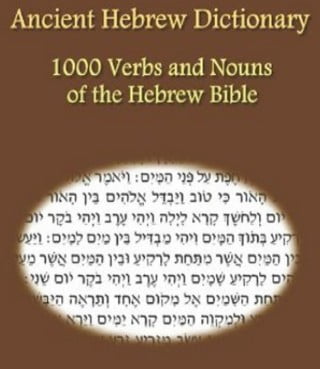
Ancient Hebrew Dictionary
Dictionary by
This book has been designed to be a quick reference guide for
looking up the meaning of common Hebrew words found in
the Hebrew Bible, as well as a resource for learning the
Hebrew vocabulary.
Within this book is a list of 1000 most frequently used
Hebrew verbs (379) and nouns (621) from the Hebrew Bible.
Each word entry includes: